Tribal and Hakki-Pikki communities living on the forest fringes and small hamlets of Hunsur and Hanagodu might stay safe from COVID infection but they are pushed into poverty and starvation as their lone source of livelihood, passed on from generations has been cut off, thanks to lockdown.
The lockdown has not only made the urban rural divide conspicuous but also gave a glimpse of the depth of inequality in our societies. Unless urgent measures are taken to uplift them through Government schemes, their survival even after the lockdown is lifted looks doubtful and arduous.
The unprecedented situation brought upon by an extended lockdown has jeopardised the livelihoods, food and nutritional security of many families of Hakki-Pikki communities who depended hugely on Ayurvedic treatment, massages and herbal remedies to lead a life. They earlier sold plant extracts and offered massages to people with body ache and other ailments.
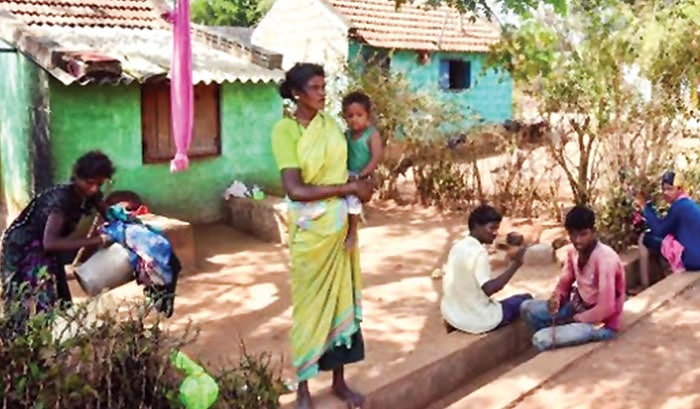
Hakki-Pikki community, one of the important nomadic communities of the State, are known for their various indigenous herbal products. Along with Hakki-Pikki communities there are Shillekyatas, also a tribal community, who live in Shankarapura and Pakshirajapura villages in Hunsur Taluk. The tribals even go abroad to sell their herbal products and offer massages and their massages are famous as “Pakshirajapura massage.”
Pakshirajapura and Shankarapura have the rare distinction of having the most number of passport holders in Mysuru district. Although a majority of them either do not have education at all or less education, they are known for speaking a good number of languages.
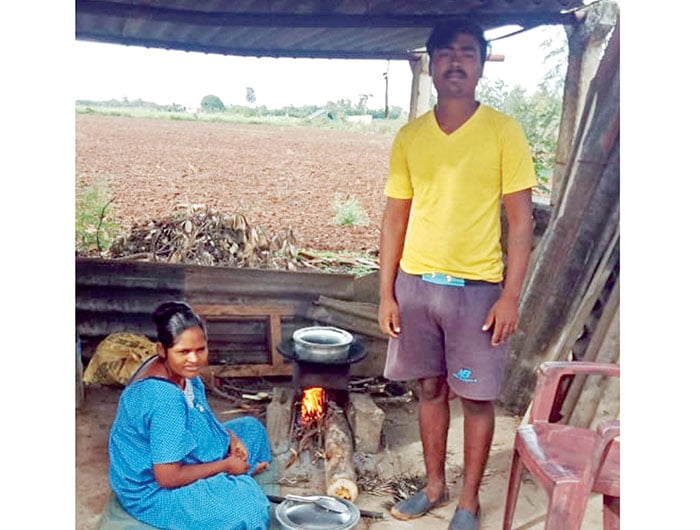
Every year, tens of the community members travel across the globe to sell their products, especially herbal oils. Many times, these people are caught by foreign Police for selling these products as they are not certified or on charges of expiry of visa.
Their multi-language speaking ability enabled them to work in foreign countries as flower decorators, flower sellers, handicraft sellers etc. They are also well-versed in herbal hair oil extraction, which they used to sell to customers both in the country and abroad.
But the lockdown since last year has disrupted their lives and in the post-first wave, they somehow managed to re-establish their trade and connections which were cut off. They managed to create a market locally too for beads and ornaments, small plastic wares and artificial garlands.
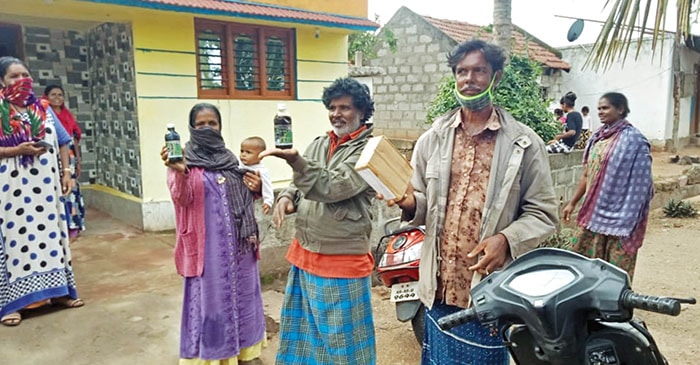
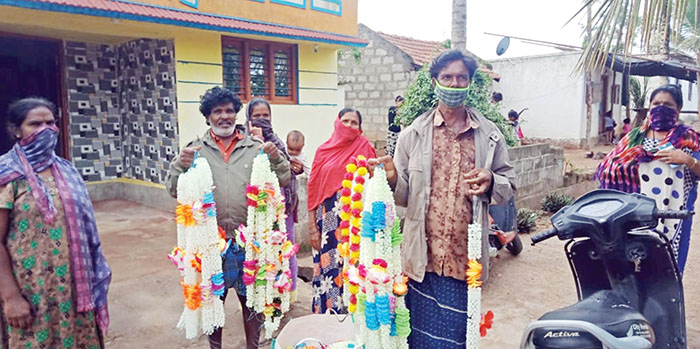
But by the time their business picked up, the deadly COVID second wave struck. Taking note of the ability and skills of these people, Social Welfare Minister B. Sriramulu had set up a herbal medicine processing unit at Pakshirajapura and had taken pains to ensure a brand for the products manufactured here.
Such a centre trained the community members in preparing various herbal products, especially various oils, by following standard protocols required for the certification, branding and marketing after fixing prices.
But despite all this, the COVID pandemic and the subsequent lockdown have made the nomadic families a worried lot as they have no market for their produce or jobs in hand. Their problems are all the more compounded as 90 percent of them have little or no knowledge of agriculture and with no other source of income or other means of livelihood, their lives have become miserable.
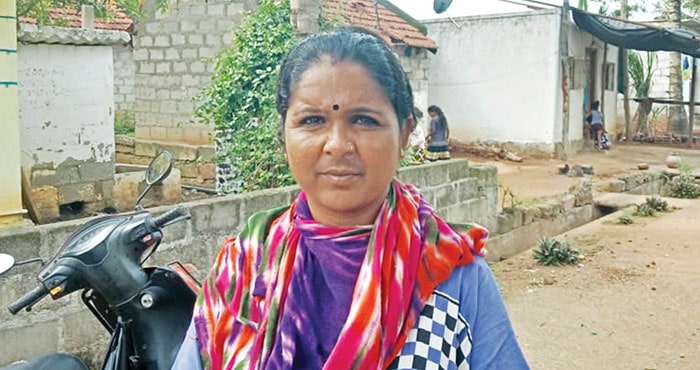
President of Kirangooru Gram Panchayat Triveni, under whose jurisdiction Pakshirajapura and Shankarapura come, has urged the Government to announce special grants for the upliftment of these poor nomadic families, who are essentially craft workers. Women in the communities are finding it extremely difficult to cope with the unprecedented situations arising out of the extended lockdown.
“We are expecting Government support to continue our community profession. Many of us travel abroad who need support. We want to preserve our rich knowledge for our next generation,” said Shivu, a youth at Shankarapura.



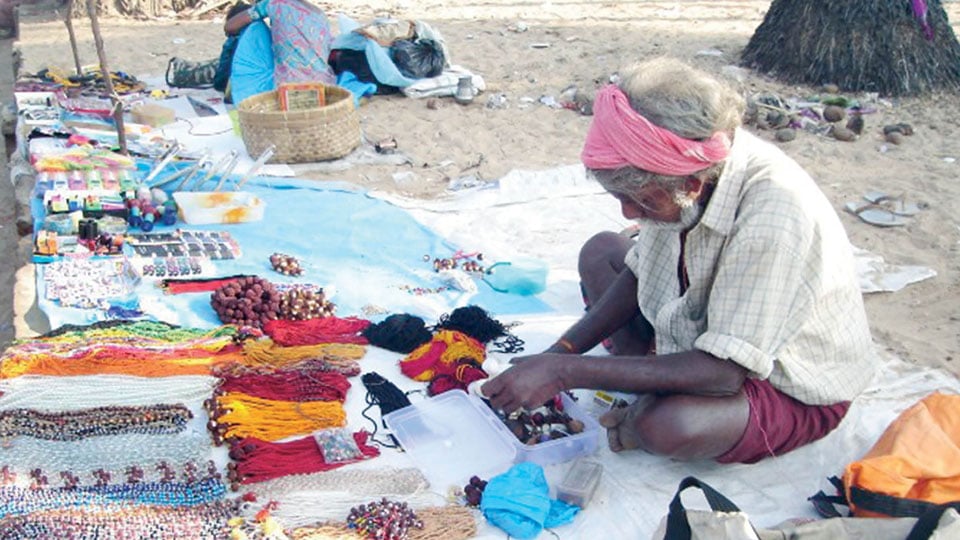




Recent Comments